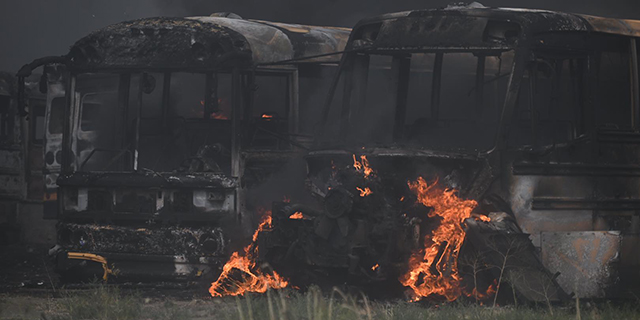No headline.
Published 9:28 am Tuesday, February 28, 2017

- Woman reading to small boy
With more women in the workforce, childcare has become a major issue. Childcare for infants can be difficult to find due to state regulations regarding the child to adult ratios required. Relatives are not always willing or able to care for the young children. What is a parent to do who needs to work but has children?
Some parents prefer having relatives care for young children because they feel more comfortable with a relative than a stranger. Others feel that their children will be more comfortable in familiar surroundings with people they know. And some believe exposure to other children is important for social development and choose to enroll youngsters in day care. But not all parents can afford this cost or find adequate day care, and some have a work schedule that is outside day care hours. This puts many families in the position of having to ask relatives to care for their children on a regular basis.
When considering using a relative for childcare there are some things to think about. Do your ideals regarding discipline, entertainment and food align – if not, this could lead to problems. One Pendleton grandmother (who preferred not to be named) takes care of her young grandson for her son, a single father. Her son lives in the same house and pays room and board, but not specifically for childcare. “I strongly believe in grandparents being a part of their grandkids’ lives,” she says.
Hermiston dad Jeremy Reuter prefers family members caring for his young son for comfort reasons. Admittedly, he says they do not often go out but he always offers to pay those who care for his son. Unlike some, Jeremy does not feel it is a grandparent’s obligation to care for their grandchildren on a regular basis.
In these situations, open communication is necessary with expectations stated up front and agreed upon in advance. It’s not so hard to fire an outside babysitter, but imagine trying to fire your mother. If you and your relative disagree on discipline or feeding it is better to have that all ironed out in advance and hopefully spare hurt feelings later.
According to Oregon Statue 163.545, children over the age of 10 may be left home alone. Most babysitting instruction courses are available to children as young as 11. The decision of when to leave your children home alone is, of course, very individual; however, the state does mandate that the adult cannot knowingly leave children in an unsafe location or situation.
Parents may want to consider the child’s maturity level when deciding to leave them home alone. Some children may not be comfortable at home alone until they are well into their teens. Consider providing a written list of dos and don’ts during home alone time. You might also have your child stay home alone on a trial basis, lengthening the time without adult supervision each time. For instance, begin with an hour and increase the time gradually. You may also want to role-play different scenarios so the child knows what to do in the event of an emergency or other situation. Some basic first aid training is also suggested because accidents do happen; ensure that children know how and when to call 911, and know how to contact a parent or relative if they feel the need. Many parents ask their children to call or text every hour to check in; if your work permits it this it may relieve a lot of parental anxiety.
You as the parent should do what you feel most comfortable with. Others will have their opinions, but in the end you know your child best.
________
Home economist Virginia Justice holds an education degree. The Pendleton resident and her husband have two college-aged daughters.





